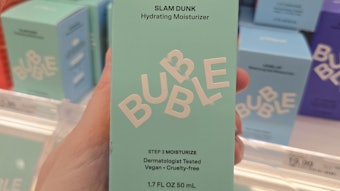Skin Care
Anti-acne cosmetics: In a recent review, Akaza reports that sodium dl-α-tocopheryl phosphate (VEP) controls the predominant type Propionibacterium acnes in acne vulgaris.1 P. acnes is thought to be one of the most important factors involved in the pathogenesis of acne vulgaris. Various kinds of vitamin preparations are widely used as adjuvants in the clinical treatment of acne vulgaris; however, the mechanisms of the therapeutic actions of these vitamins have not yet been clarified. Therefore, Akaza studied the antimicrobial activities of vitamins B2, B6, C, E and their derivatives against P. acnes in the clinical treatment of acne vulgaris.
VEP showed the strongest antimicrobial activity against P. acnes. In particular, the antimicrobial activity of VEP was more effective against P. acnes DNA-type 3. Of all the various DNA-types of P. acnes, DNA-type 3 is considered to have the most influence on the pathogenesis of acne vulgaris. The mechanism of the antimicrobial activity of VEP against P. acnes was via destruction of the cell membrane, the same mechanism used by surfactants. Using lotions containing VEP for four weeks reduced the number of P. acnes lesions and also reduced indications of inflammatory acne vulgaris. These results suggest that anti-acne cosmetics containing VEP









